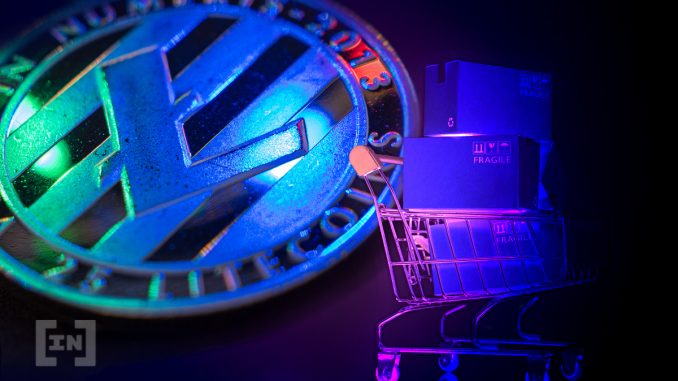
Litecoin shows signs of an imminent rally in 2022, linked to the number of active addresses, similar to a pattern seen in 2017. However, the Reserve Risk and MVRV-Z metrics indicate an oversold state rather than an overbought state, painting a somewhat ambiguous outlook for 2022.
Litecoin is showing the signs of another bullish trend, closely emulating other bullish trends which occurred in November 2013, where the price rocketed from $5 to $63 in a few weeks. In December 2017, the price rose from $50 to $369, amidst a surge in demand. Recent on-chain metrics indicate a general upward trend. The number of addresses has seen an upward parabolic trend since Dec 2020, which seems to correlate with the upward trend in the price from $129.94 on Dec 31, 2020, to $377.69 on May 12, 2021. The number of active addresses recently showed a sharp spike, similar to that seen in April 2021. The seven-day moving average indicated a spike in active addresses on Oct 10, 2021.
This is similar to when the number of active addresses reached 16961 on Apr 8, 2013, LTC cost $4.50. Nov 12, 2013, saw an increase to 18322. After that, the price climbed to $95 on Nov 28, 2013. The seven-day moving average of active addresses peaked on May 16, 2017, after which LTC rose from $23.50 to a cycle high of $369 on Dec 17, 2017. Other indicators like LTC’s reserve risk ratio and its MVRV Z-score paint a different picture, indicating that Litecoin has been oversold and not overbought. An overbought state suggests that there has been a significant and consistent upward trend with minimal pullback. An oversold state is one where the price of a coin has shown a consistent downward trend, with minimal correction. There have been two times when the Reserve Risk indicated an overbought state, and a rally followed. Currently, the Reserve Risk is sitting at below 0.003, showing an oversold condition. The MVRV Z-score is a way to measure whether litecoin is undervalued or overvalued concerning its fair market value over time. The current MVRV Z-score is above two and needs to hit seven to be considered overbought.
Brief overview of Litecoin price behavior over the last four years
Historically, 2016 was the least eventful year for price movement, with the price only increasing by 27%, ending the year at $4.36. 2017 was the most bullish in Litecoin’s price history, with bullish candlesticks created almost every month. By the end of the year, it had risen 5451%. In 2018, Litecoin had a bearish conclusion to each month and decreased to $30.62 by the year’s end. The year 2019 saw a high of $146.95, but eventually, the year ended, having seen only a 33.7% rise during the year.
Litecoin’s market cap at the time of writing was approximately $13.3B, and its price was $188.79.
Litecoin vs. Bitcoin
Litecoin was recently supported by BitPay, and accepted at AMC theatres. Litecoin was created as a fork from Bitcoin in 2011. Similar to bitcoin, Litecoin is deflationary, with a maximum of 84 million coins that can be minted. Litecoin has a quicker block time of 2.5 minutes, compared to bitcoin’s 10 minutes. Litecoin has a less complex validation method than bitcoin, even though it also uses Proof-of-Work.
What do you think about this subject? Write to us and tell us!
Disclaimer
All the information contained on our website is published in good faith and for general information purposes only. Any action the reader takes upon the information found on our website is strictly at their own risk.






Be the first to comment